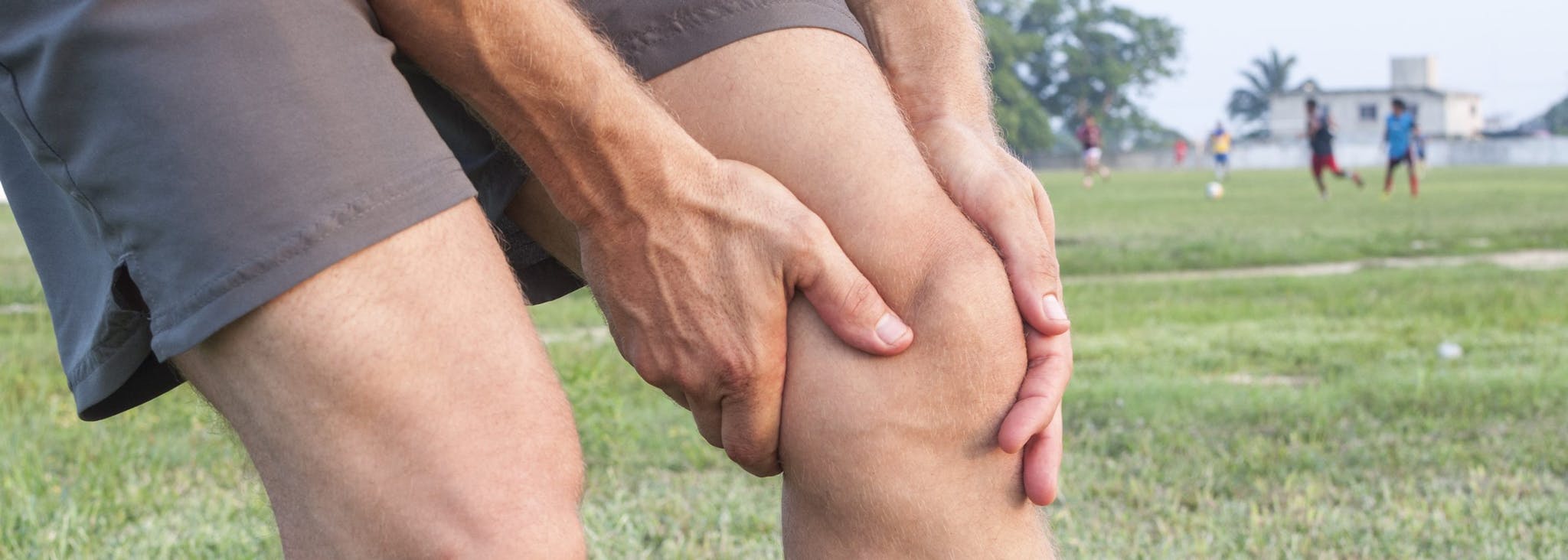
2024-07-12T16:54:51
Sunscreen Travel Tips
- Dermatology
September 9, 2016 | Orthopedics

You’ve tried to treat your arthritic hip with large doses of nonsteroidal anti-inflammatories, glucosamine and chondroitin, corticosteroid injections, physical therapy and you use a walker or cane. You can’t climb stairs, and the excruciating pain keeps you awake at night. Your hip pain makes walking, standing and rising from a chair nearly impossible, and the distant memory of being able to soak in a bathtub, wrestle with a grandchild or garden is just that – a memory.
If this sounds like you, your orthopedic specialist may suggest a joint replacement to relieve your pain and return you to an active lifestyle. Although it’s possible to replace the joints of the shoulders, elbows, fingers and ankles, the hip and knee joints are the most commonly replaced.
“More than 1 million Americans have a hip or knee replaced each year,” reports the National Institutes of Health. Between 2000 and 2010, the number of hip replacement surgeries more than doubled, and experts attribute this to the rising rates of osteoarthritis.
“Bones are alive, and they need blood to be healthy, grow and repair themselves,” explains the NIH. Osteoarthritis is caused by the gradual wear and tear of the cartilage in a joint, which limits blood flow, leads to inflammation of the joint lining and causes the joint to erode. This is why you experience persistent pain, stiffness and swelling.
During a joint replacement procedure, your orthopedic surgeon removes the damaged joint and puts in a new one called a prosthesis. It can be made of metal, plastic or both, and it may or may not be cemented in place, depending upon your age.
Typically, a hip replacement surgery takes about two hours or less, and requires a hospital stay of a few days. You’ll probably begin to stand and walk with the help of crutches or a walker right away, and begin physical therapy the day after surgery to help strengthen the muscles around the new joint and help you regain range of motion.
Your new hip joint may last as long as 15 years, and you’ll be amazed at your ability to return to the activities you once enjoyed. A survey of 180 patients two to three years after hip replacement found that 89 percent were satisfied with the results of their surgery.
Your doctor may recommend knee replacement surgery if your stiff, painful knee prevents you from performing simple activities such as walking or climbing stairs, and all other treatments have failed. This surgery is most commonly performed on people over age 50 who have severe osteoarthritis.
Total knee replacements are one of the most successful procedures in all of medicine, according to the American Academy of Orthopedic Surgeons. More than 600,000 knee replacements are performed each year in the United States, and 90 percent of the people who undergo the procedure experience significantly less pain. Many are able to return to their favorite sports like tennis, hiking and golf—activities their arthritic pain kept them from enjoying in the past.
Under general anesthesia, a large incision is made in the front of the knee. and the damaged part of the joint is removed from the surface of the bones. Your surgeon inserts a metal or plastic artificial joint that is attached to the thighbone, shin and kneecap with ce
ment or another material. You’ll start standing and moving your new knee the day after
surgery and remain in the hospital for a few days.
You can expect to feel dramatic improvement within four to six weeks after surgery with the help of one to two months of physical therapy. You’ll be enjoying your new knee for many years. In fact, about 85 percent of artificial knees still work after 20 years. This is just one reason why this mobility-restoring procedure is so popular.
Is degenerative osteoarthritis making it hard to live a pain-free life and be as active as you’d like to be? The Revere Health Orthopedics department is the premier provider of orthopedic and sports medicine services in Utah County, offering the largest group of practicing orthopedic specialists in the Valley. For over 30 years, our orthopedic surgeons have served the needs of the community, diagnosing and treating all orthopedic and sports-related conditions and injuries using the latest techniques and state-of-the-art equipment.
WRITTEN BY:
The Live Better Team


2024-07-12T16:54:51

2024-07-02T11:42:04

2024-07-01T13:49:28

2024-06-21T14:29:51
This information is not intended to replace the advice of a medical professional. You should always consult your doctor before making decisions about your health.